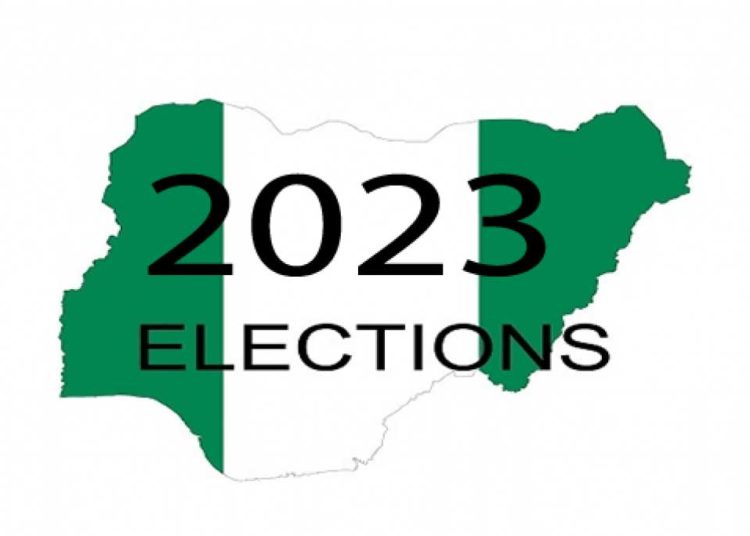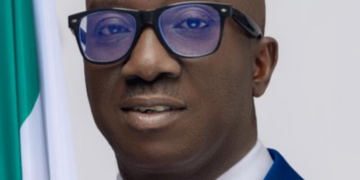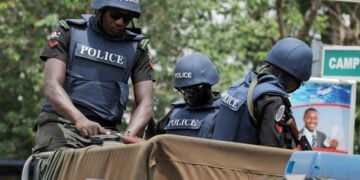The fallouts of the 2023 general election have exposed situations that indicate a compelling need to further amend the country’s constitution and the Electoral Act to strengthen the democratic process.
In the run up to the election, the nation was entertained with copious assurances by the Independent National Electoral Commission (INEC) that the Bimodal Voter Accreditation System (BVAS) technology would solve the perennial problem of election results falsification. The successful use of the technology in off-cycle governorship elections in states like Anambra, Osun and Ekiti, lulled many a Nigerian into complacency even if it also motivated others to vote in that general election. The conviction that their votes will count was strong, unlike in the past when many disbelieved the election figures produced by the electoral body.
The election has come and gone but the issues thrown up by the result and how it was arrived at are still being hotly contested in the courts of law and the court of public opinion. Of particular mention is the presidential election in which INEC declared Bola Ahmed Tinubu of the ruling All Progressive Congress (APC) winner, but which his two main challengers, Atiku Abubakar of the main opposition Peoples Democratic Party (PDP) and Peter Obi of the Labour Party are both claiming to have won. Both Atiku and Obi are presently on their way to the Supreme Court to challenge the verdict of the Presidential Election Petition Tribunal.
To many, INEC’s failure to upload the presidential election results on the IREV portal and its explanation of ‘glitches’ are not convincing enough. With the Presidential Election Petition Tribunal dismissing the petitioners’ suits and affirming INEC’s declaration of the winner, opinions are sharply divided over whether the tribunal’s judgement amounts to substantial justice for the petitioners and their teeming supporters. Respondents in an online discussion hosted by this newspaper asserted that the laws gave a leeway for manipulators to hijack the election, and that the judges were not to blame.
In view of all the pre-election, election day and post-election issues arising from the 2023 general election, we feel sufficiently persuaded to suggest certain changes to the existing laws guiding the electoral process. The envisaged new law should remove INEC’s discretion in the use of BVAS/IREV technologies for real-time uploading of results from polling units. This can be done by legalising and mandating their use.
Also, any amendment to the law should make it possible for all those qualified to vote to exercise their franchise from any part of the country, the same way they can use their ATM cards to carry out banking transactions anywhere. Furthermore, the voter registration process should be an open and continuous exercise not only in the approach to elections.
Since democracy affirms rule of the majority, we suggest that the winner of any election must secure more than 50 percent of the votes cast in the election, whether in the first ballot or runoff. In the last presidential poll, the declared winner obtained the minority vote at only about 36 percent. This means that about 64 percent of Nigerians did not want him as their president. This casts a legitimacy shadow on his mandate. In the proposed new law, the winner has to obtain the majority vote.
Also, there is the need to conclude all election petition cases before the swearing-in of the winners. Apart from the untidy nature of the litigation process questioning the president’s electoral victory and eligibility, it is a serious distraction to governance. It is also a waste of scarce resources if after holding an office for several months, a person is removed by the court either for re-election or replacement by another candidate who will reverse his actions and start all over again.
Moreover, the present status of the declared winner confers on him an unfair advantage against his opponents; he can use his vast powers and resources to influence or whip the judiciary and security agencies into line.
There is also the need, in our view, to tighten the laws against vote buying that characterise primary elections and other anti-democratic intra-party activities, like imposition of candidates which make it difficult for credible candidates to emerge. Modalities for independent candidacy should be explored. It is also our opinion that elected political office holders who defect to other parties should automatically vacate the office they were holding and a fresh poll held to elect their successors.
Also, to ensure impartiality in INEC, the present practice of the president appointing its chairman and other key officials should be jettisoned. Interested non-partisan candidates should be chosen in a process that involves all the political parties, civil society organisations and credible public-spirited Nigerians.
It is also our considered opinion that the Election Offences Commission Bill should be fast-tracked into law and the body set up to deal with electoral offenders. We must do the needful as a nation to ensure the success and survival of democracy.





